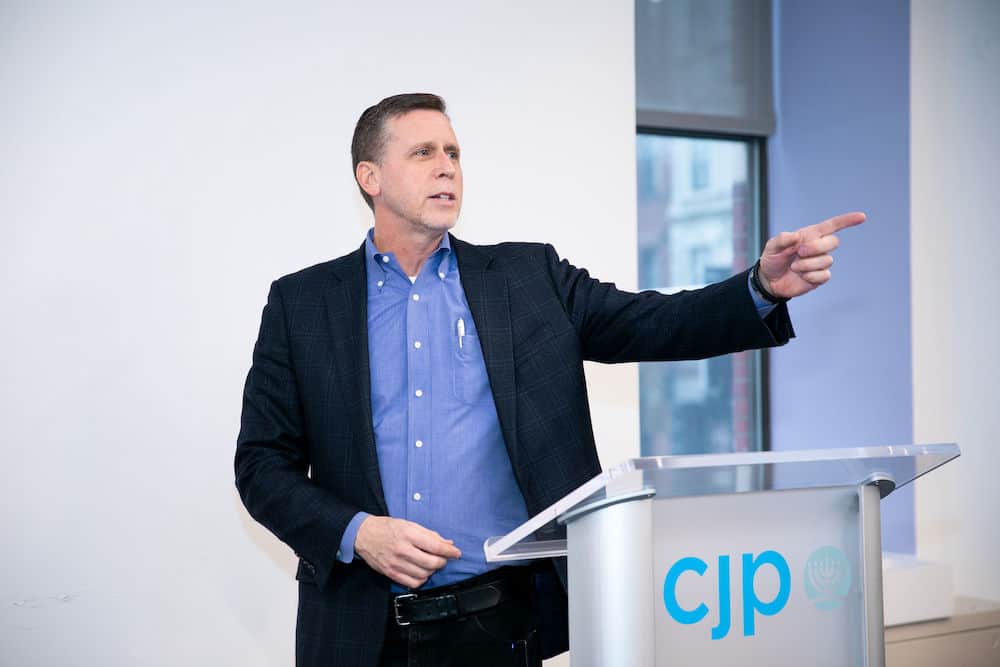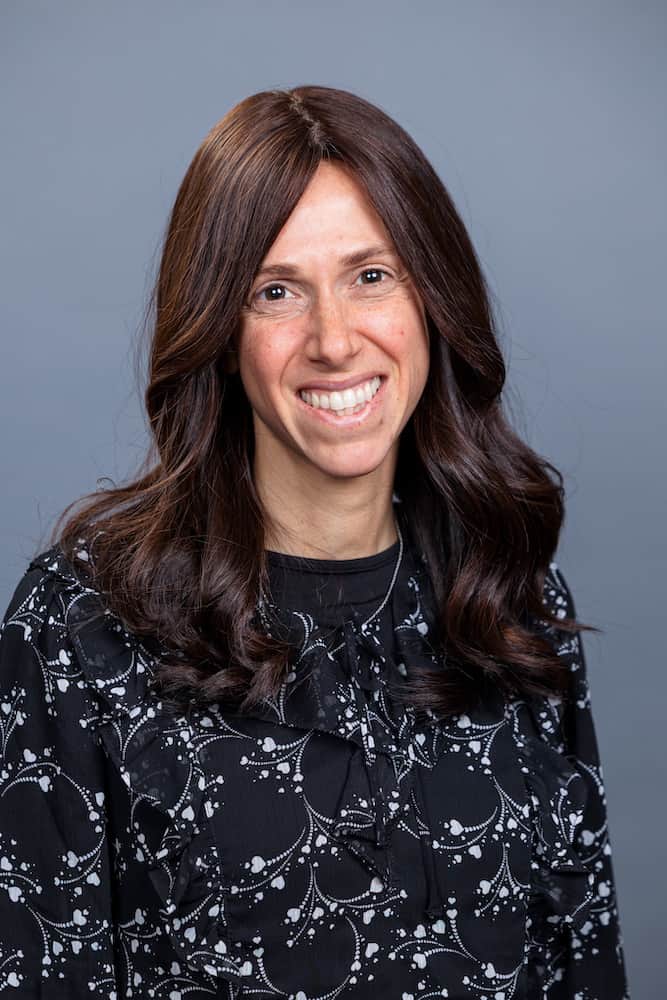Jeremy Yamin, CJP’s vice president of security and operations, wants to encourage a person-centered way of thinking about how to keep Jewish organizations safe during a time of rising antisemitism. Part of his work oversees CJP’s Communal Security Initiative (CSI), which provides professional security advice and support to the Greater Boston Jewish community at no cost to partner organizations.
According to Yamin, a security system needs to have people trained in how to use it. “If the person behind the door automatically opens the door to anyone who buzzes,” the system is “actually defeated,” he explained. “How do we use it more effectively, not just buzz anyone in without determining who they are first? We try to have both openness and inclusivity, as well as safety and security. We provide [organizations] with education and training on that path.”
Yamin spoke with JewishBoston in the wake of the Dec. 7 White House roundtable on antisemitism. With antisemitism increasing both nationally and in Massachusetts, Yamin cited multiple incidents within the state over the last several years; one of the most significant being the July 2021 stabbing of Rabbi Shlomo Noginski outside of Shaloh House in Brighton. The previous month, a white supremacist killed two Black victims in Winthrop amid reports that he was planning to attack the nearby Congregation Tifereth Israel.

Yamin recommends a “proactive, not reactive” approach to the upsurge in antisemitism that includes training people at Jewish organizations and institutions in how to think about security. For example, if a stranger requests to enter a synagogue, the person behind the door can ask whether they have an appointment, or who they are there to see. CSI works with over 110 synagogues, as well as 40 Chabad centers, 14 Jewish day schools, 40 preschools and more than 50 agencies and community organizations, through the support of donors and CJP.
Funded by communal philanthropy, last year CSI provided $800,000 in physical security grants, while also showing how to apply for other security grants through the federal government and the Commonwealth of Massachusetts. But the need for support far outweighs current staffing and funding. As part of a national effort, CJP will be raising funds to increase its capacity to support organizations to improve physical and cyber security.
“We work proactively,” Yamin said, “to help them prioritize their own security investments and to help them develop emergency operations plans.”
The Orthodox organization Agudath Israel of America is also addressing antisemitism in the Boston area. Agudath was one of the 13 organizations represented at the White House roundtable, and, in late December, opened its Grand Chanukah Hummer Parade at Shaloh House to the entire community of Allston-Brighton as a way of saying thanks for their support following the attack against Rabbi Noginski last year.
Ariella Hellman, director of government relations at Agudath Israel New England, noted the local community subsequently mobilized to show support for Noginski: “We were very, very grateful, after everything, that there was a vigil against hate right across the street on Brighton Common,” she said said. “All the elected officials were there, members of the legislature. The Allston-Brighton community stood with us.”

Hellman also expressed concern about a development that occurred this past summer—the Mapping Project, an anonymous website that accused a variety of Massachusetts organizations with complicity in the colonization of Palestine, using a map to show connections between organizations, as well as contact information.
“A number of our organizations included on the map have adults and children with developmental disabilities,” Hellman said. “Really vulnerable organizations were targeted. It’s very disturbing to see the calls to ‘disrupt’ organizations, the physical location of Jewish day schools, synagogues, social service organizations.”
More recently, however, she was pleased to see what she hailed as a positive step for Brighton’s Jewish community. The City of Boston approved a house of worship to open in a residential area—Khal Tiferes Yosef. According to Hellman, such developments are not always possible because of Boston’s zoning code, and she was grateful to people who helped make it possible, from city councilors to Congresswoman Ayanna Pressley to letter-writers from the community. “There was a very strong level of support in the community. It had been operating in a rabbi’s basement,” she said. “We’re excited and grateful that they made sure everyone can feel safe, included and welcome within the City of Boston.”
Hellman noted the importance among the Orthodox of going to a synagogue within walking distance: “It’s the only synagogue in the entire area. We feel it’s really important that there can be a house of worship, a synagogue, within walking distance of where people live.”



